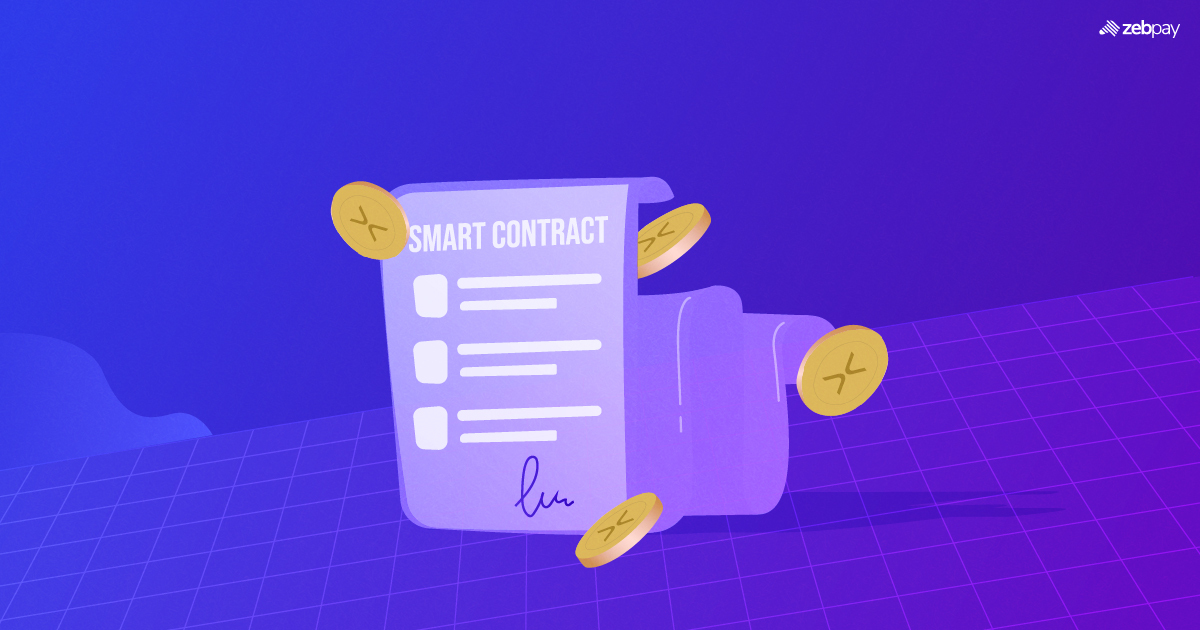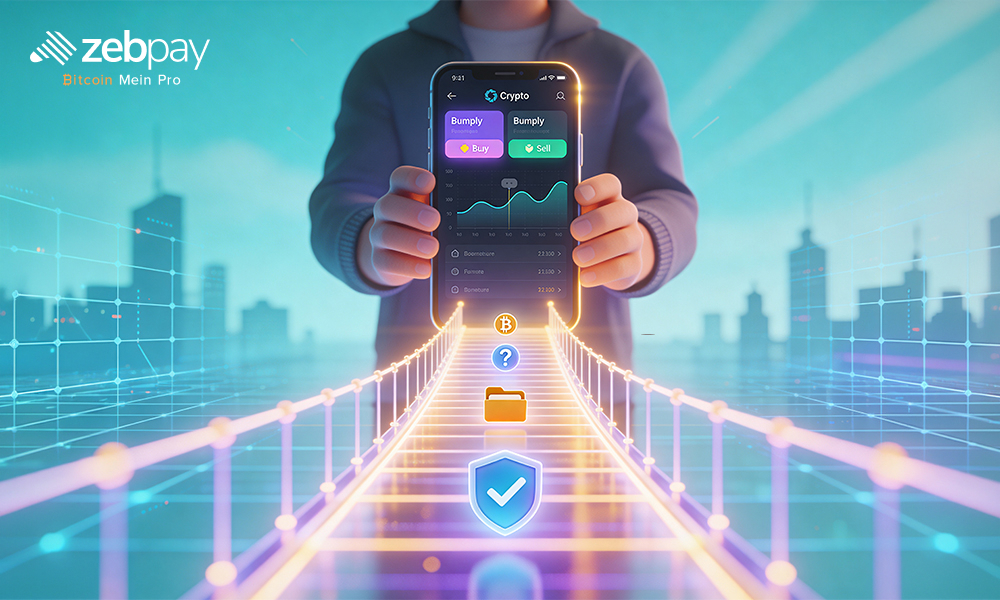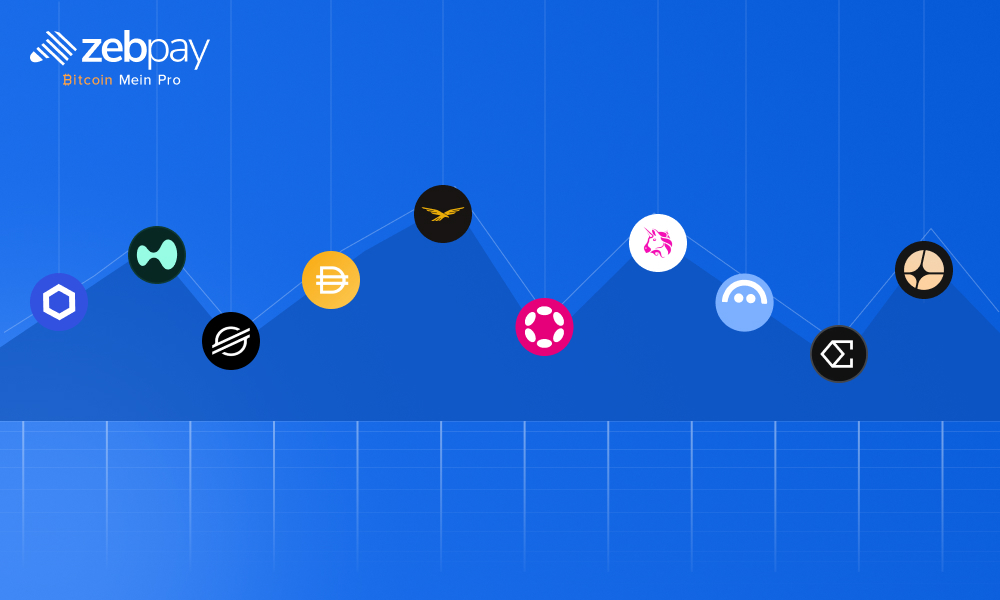SWIFT has long been seen as an inefficient payment system due to its multiple transaction layers. Blockchain can solve this inefficiency by enabling faster and cheaper cross-border payments. The Ripple network is a distributed ledger technology that has the potential to disrupt conventional financial practices by offering a more efficient, fast, and cost-effective payment network. The Ripple network was launched in 2012 and differs from other crypto as it is controlled by a single firm rather than a decentralized community. It is also not positioned as an alternative to established crypto tokens; instead, it aspires to be a middleman that facilitates global trading between any unit of value, such as fiat money and crypto.
Smart contracts are computer programs that run automatically when certain conditions are satisfied. They are commonly used to automate the implementation of an agreement so that all parties are aware of the outcome from the start. They eliminate the need for a third party to validate or execute a transaction. They also eliminate human bias and are traceable on the blockchain. While Smart contracts originated and are employed in crypto protocols, they can be used to execute agreements in multiple industries. This article will explore the synergy between Smart contracts and centralized entities such as the Ripple network to see how they can impact the future of finance.
Ripple: An Innovative Blockchain Technology
Most crypto protocols are decentralized and thus not run by a single entity, but the XRP token is controlled by Ripple. Ripple aims to position itself as a modern version of the SWIFT system, and it is already utilized by multiple financial institutions. XRP is a digital asset that serves as a bridge between fiat currencies, enabling smooth transactions without the need for services from large financial institutions. It reduces the cost and time required for cross-border payments. In comparison to other cryptos, XRP is regarded as a more viable alternative for enterprises trying to simplify their payment operations due to its efficiency and stability. Some of its key features include:
Trustworthy Network
XRP operates on RippleNet with a global network of 150 validators. It has features like high stability and reliability making it a preferred choice among top financial institutions.
Low-Cost Transactions
Ripple employs drops as a unit of measurement for XRP transactions, making them easily accessible and low-cost.
Scalable Infrastructure
Ripple, like conventional payment processors like VISA, can handle a vast number of transactions per second, making it an attractive alternative for fintech enterprises looking for a robust infrastructure and a reliable crypto payment gateway. Unlike other traditional blockchain protocols, which have limited processing capacity, Ripple can handle a vast number of transactions.
Speedy Transactions
XRP provides fast transaction confirmations because the ledger processes transactions in about 3-5 seconds, faster than the average time for Bitcoin transaction confirmations, which can take up to 20 minutes.
Eco-Friendly
Unlike other blockchain networks, XRP does not require intensive processing resources for mining, allowing its nodes to run efficiently with minimum energy use.
Decoding Smart Contracts

A Smart contract is a computer program that encodes the terms and conditions of an agreement between parties. They automatically fulfill the terms of the contract once the conditions are met. They allow users to exchange anything of value in a way that is visible, traceable, and tamper-resistant.
The advantage of using a Smart contract in blockchains is that it allows the contract to be carried out safely without intermediaries such as financial or legal organizations. Instead, the contract is governed by the decentralized network of computers that run the blockchain.
The Synergy Between Ripple and Smart Contracts
Ripple can be used as a platform for Smart contracts to create decentralized applications (dApps). They can support financial institutions and payment providers to offer their customers financial services such as escrow services, digital wallets, and more. Ripple is mainly used as a platform for quick and low-cost cross-border payments. Financial institutions can execute cross-border transactions in real-time using XRP as a bridge currency, eliminating the need for pre-funding or intermediaries.
Read more: DApps VS Smart Contracts
Impact on Traditional Finance
Ripple has the potential to disrupt international payments and remittances. It can replace the present SWIFT network by supporting quick and low-cost transactions. It built a streamlined digital asset management system that uses a dashboard for managing, trading, and reporting to bridge the gap between digital assets and fiat currencies.
Crypto is expanding its functionality to non-fungible tokens (NFTs), the metaverse, and DeFi. Following suit, the Ripple ecosystem is also working to develop projects for NFT issuance, Smart contract implementation, and the creation of sidechains. To emphasize its commitment, it created a $250 million fund to assist NFT creators in minting their projects onto the XRP ledger.
Ripple has positioned itself as a developer of Central Bank Digital Currencies (CBDCs) applications to help promote the adoption of these new monetary tools, as many central banks are currently developing their CDBCs. It provides a platform for minting, managing, and destroying CBDCs based on an advanced technological ledger, boosting its reputation as a solution to assist financial institutions with payment transfer management.
Smart Contracts and Decentralized Finance (DeFi)
DeFi, or decentralized finance, has emerged as one of the most prominent innovations in the crypto industry. It is a financial system that operates on a decentralized network and is not controlled by central intermediaries such as banks. It wants to leverage the power of blockchain technology to build an open and permissionless financial system for everyone. It has grown in popularity as it offers more transparent, efficient, and accessible financial services to the unbanked.
DeFi uses Smart contracts to enable multiple use cases, including borrowing, lending, and derivatives. It is based on the principle of composability, as it combines different Smart contracts to create new financial instruments and services. Smart contracts facilitate DeFi development to create more efficient, transparent, and accessible financial services.
The Ripple Network has exceptional scalability and can handle large transactions. Its efficiency and capacity keep improving as more financial institutions join the network. Its innovative technology can support the development of Smart contracts, opening new opportunities for developing unique DeFi applications. Its potential for growth and innovation, such as supporting Smart contract technology, can transform the future of finance.
Read more: Ripple (XRP) Price Prediction
Future Outlook and Potential Developments
Ripple is also pioneering artificial intelligence (AI) on its platform. It hopes to improve its transaction speed, liquidity management, and user experience by leveraging the power of AI. AI-powered algorithms can mine massive volumes of data for patterns and trends, allowing for more accurate decision-making and predictions. This integration of AI and blockchain technology can strengthen Ripple’s position as a worldwide money transfer market leader.
To stay up to date with the latest crypto news, visit ZebPay blogs. Click on the button below to trade on ZebPay.







